Filter by
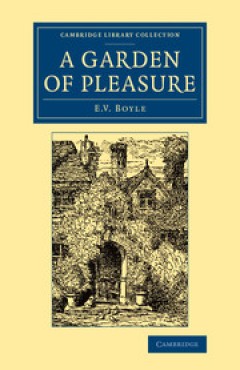
A Garden of Pleasure
Eleanor Vere Boyle (1825–1916), who re-created the gardens of Huntercombe Manor in Berkshire in the 1870s, was a talented artist as well as an author, illustrating both poetry and books for children. Coming from an aristocratic family, and in later life a friend of Queen Alexandra, she produced sketches and watercolours admired by Ruskin and Landseer, and Tennyson and Bulwer Lytton contribute…
- Edition
- -
- ISBN/ISSN
- 9781107741805
- Collation
- -
- Series Title
- Cambridge Library Collection - Botany and Horticulture
- Call Number
- -
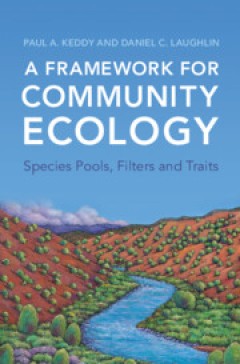
A Framework for Community Ecology
This book addresses an important problem in ecology: how are communities assembled from species pools? This pressing question underlies a broad array of practical problems in ecology and environmental science, including restoration of damaged landscapes, management of protected areas, and protection of threatened species. This book presents a simple logical structure for ecological assembly and…
- Edition
- -
- ISBN/ISSN
- 9781009067881
- Collation
- -
- Series Title
- -
- Call Number
- -
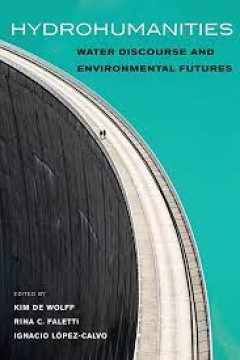
Hydrohumanities Water Discourse and Environmental Futures (Edition 1)
A free open access ebook is available upon publication. Learn more at www.luminosoa.org. Discourse about water and power in the modern era have largely focused on human power over water: who gets to own and control a limited resource that has incredible economic potential. As a result, discussion of water, even in the humanities, has traditionally focused on fresh water for human use. Today, cl…
- Edition
- -
- ISBN/ISSN
- 9780520380462
- Collation
- -
- Series Title
- -
- Call Number
- -
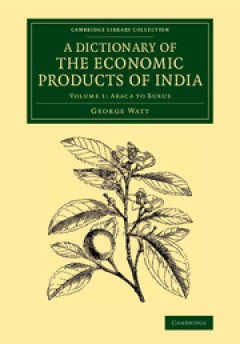
A Dictionary of the Economic Products of India
A Scottish doctor and botanist, George Watt (1851–1930) had studied the flora of India for more than a decade before he took on the task of compiling this monumental work. Assisted by numerous contributors, he set about organising vast amounts of information on India's commercial plants and produce, including scientific and vernacular names, properties, domestic and medical uses, trade statis…
- Edition
- -
- ISBN/ISSN
- 9781107239210
- Collation
- -
- Series Title
- Cambridge Library Collection - Botany and Horticulture
- Call Number
- -
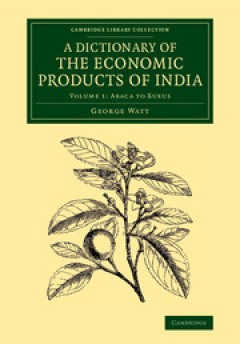
A Dictionary of the Economic Products of India
A Scottish doctor and botanist, George Watt (1851–1930) had studied the flora of India for more than a decade before he took on the task of compiling this monumental work. Assisted by numerous contributors, he set about organising vast amounts of information on India's commercial plants and produce, including scientific and vernacular names, properties, domestic and medical uses, trade statis…
- Edition
- -
- ISBN/ISSN
- 9781107239159
- Collation
- -
- Series Title
- Cambridge Library Collection - Botany and Horticulture
- Call Number
- -
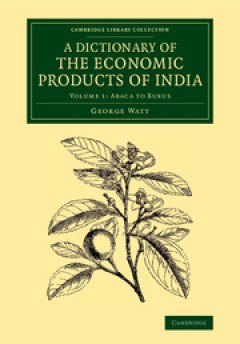
A Dictionary of the Economic Products of India
A Scottish doctor and botanist, George Watt (1851–1930) had studied the flora of India for more than a decade before he took on the task of compiling this monumental work. Assisted by numerous contributors, he set about organising vast amounts of information on India's commercial plants and produce, including scientific and vernacular names, properties, domestic and medical uses, trade statis…
- Edition
- -
- ISBN/ISSN
- 9781107239173
- Collation
- -
- Series Title
- Cambridge Library Collection - Botany and Horticulture
- Call Number
- -
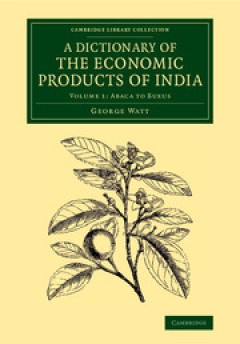
A Dictionary of the Economic Products of India
A Scottish doctor and botanist, George Watt (1851–1930) had studied the flora of India for more than a decade before he took on the task of compiling this monumental work. Assisted by numerous contributors, he set about organising vast amounts of information on India's commercial plants and produce, including scientific and vernacular names, properties, domestic and medical uses, trade statis…
- Edition
- -
- ISBN/ISSN
- 9781107239142
- Collation
- -
- Series Title
- Cambridge Library Collection - Botany and Horticulture
- Call Number
- -
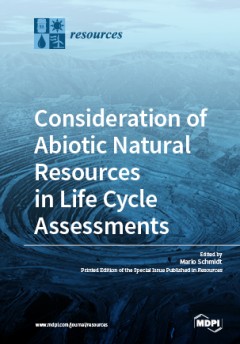
Consideration of Abiotic Natural Resources in Life Cycle Assessments
The book contains a collection of articles dealing with how the extraction of mineral resources can be considered in environmental analyses such as Life Cycle Assessment (LCA). The consumption of resources, e.g., metals, is increasing strongly worldwide. This is associated with more energy use; environmental pollution; and social, economic, and political consequences. An increase is also expect…
- Edition
- -
- ISBN/ISSN
- -
- Collation
- -
- Series Title
- -
- Call Number
- 628 CON
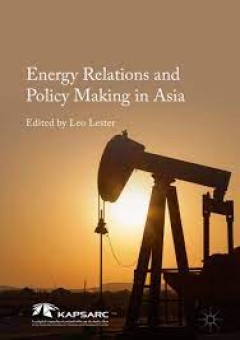
Energy Relations and Policy Making in Asia
This volume goes beyond a conventional analysis of Asia’s energy relationships and explores the premise that energy relations in Asia in the 21st century should reinforce mutual interdependence. Conventional analyses of international energy relations stress the asymmetric nature of the risks and costs of disruptions to energy flows. Energy suppliers (net exporters) are concerned with the cost…
- Edition
- -
- ISBN/ISSN
- 978-981-10-1094-1
- Collation
- 16 illustrations in colour
- Series Title
- -
- Call Number
- -
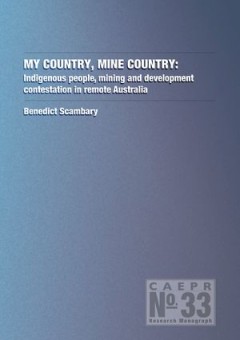
My Country, Mine Country: Indigenous people, mining and development contestat…
Agreements between the mining industry and Indigenous people are not creating sustainable economic futures for Indigenous people, and this demands consideration of alternate forms of economic engagement in order to realise such ‘futures’. Within the context of three mining agreements in north Australia this study considers Indigenous livelihood aspirations and their intersection with sustai…
- Edition
- -
- ISBN/ISSN
- 9781922144720
- Collation
- -
- Series Title
- -
- Call Number
- 340.115 SCA m
 Computer Science, Information & General Works
Computer Science, Information & General Works  Philosophy & Psychology
Philosophy & Psychology  Religion
Religion  Social Sciences
Social Sciences  Language
Language  Pure Science
Pure Science  Applied Sciences
Applied Sciences  Art & Recreation
Art & Recreation  Literature
Literature  History & Geography
History & Geography